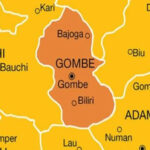
One of the sources of Nigerian English that I have identified in several of my writings is linguistic improvisation. Linguistic improvisation occurs when speakers of a language invent new words, or expand the meaning and usage of existing ones, to give expression to novel cultural, social, political, etc. experiences and ideas that are not lexicalized in the language.
The expression “budget padding” is a close example of linguistic improvisation in Nigerian English.Although no one definition accurately encapsulates the entire meaning of the term (even House of Representatives Speaker Yakubu Dogara once said he didn’t know what it meant), “budget padding” is generally understood in Nigeria to mean the borderline unethical addition of expenditures to the national budget, especially to allow for “constituency projects”that benefit members of the National Assembly.
This understanding of the term derives from the notion of “padding” as stuffing something with extraneous material in order to firm it up. Some women, for instance, pad their bras to enhance their “cleavage,” or to lend anillusion of largeness to theirbosoms.Cabinetmakers pad chairs with foams both to raise them andto cushion the hardness of their surfaces. In essence, padding entails the addition of extra elements to something.
Although I said“budget padding” is a Nigerian coinage, it has actually appeared a few times in American English, albeit in personal and small-business budgeting contexts. I’ve heard and read a few Americans talk of “padding the budget,” by which they basically mean allocating more money for their expenditures than they actually plan to spend, in order to take care of unanticipated expenses without being discombobulated.
For instance, if your monthly income is N100,000 and you plan on spending N50,000 for the month, you may pad the budget by increasing your expected expenditure to N70,000 so that if, for example, your car breaks down and needs to be repaired, your padded budget would take care of the contingency. Note that this usage isn’t widespread in America.
According to the 2.8-billion-word-strongNews on the Web Corpus, the expression “padding the budget” first appeared on the web inthe Punch of December 23, 2015. But that is inaccurate. I found mentions of the term on American websites earlier than December 23, 2015.
For instance, I found a January 10, 2015 reference to “padding the budget” on the website of the University of North Florida. It goes: “When bottom-up budgeting is employed, lower-level managers are allowed to provide input into budgeted amounts for their division or department. To avoid the possibility of spending more than the budget allows, some managers might overstate the amount they expect to spend. This is called building slack into the budget or padding the budget.”
But Nigerian legislators have expanded this rare American (business) English meaning of “budget padding” to meansneaky additions to the national budget presumably to fund local projects in the legislative districts of members of the National Assembly. It is also entirely possible that the people who coined the term in Nigeria were never even aware that it is used in different but fairly similar contexts in America.
Name for “budget padding” in other democracies
In spite of suppositions to the contrary, inserting allocations for “constituency projects” for legislators in national budgets isn’t unique to Nigeria. It also happens in many democracies. In America it’s called “pork barrel,” and has been part and parcel of the American budgetary process since the 1800s.
Random House Dictionary defines pork barrel as “a government appropriation, bill, or policy that supplies funds for local improvements designed to ingratiate legislators with their constituents.”Oxford Dictionary defines it as “The use of government funds for projects designed to please voters or legislators and win votes,” and says the usage is a figurative extension “from the use of such a barrel by farmers, to keep a reserve supply of meat.”
Of course, the expression “pork barrel” has no chance of gaining traction in Nigeria because up to half of Nigeria’s legislators are Muslims for whom pork, that is, pig meat, is forbidden.
It is noteworthy that although “pork barrel” isn’t illegal in America, it’s considered unethical. There is an NGO by the name of Citizens Against Government Waste that has dedicated itself to stopping it. The Washington Post called it America’s “leading opponent of pork-barrel spending.”
Another term that is often treated as an equivalent word for “pork barrel” in American English is “ear mark.” It is defined as “a provision or report language included primarily at the request of a Member, Delegate, Resident Commissioner, or Senator providing, authorizing or recommending a specific amount of discretionary budget authority, credit authority, or other spending authority for a contract, loan, loan guarantee, grant, loan authority, or other expenditure with or to an entity, or targeted to a specific State, locality or Congressional district, other than through a statutory or administrative formula driven or competitive award process.”
But some people insist there is a difference between “ear mark” and “pork barrel.” While ear marks meet an objective need of a community, pork barrels are mere discretionary, “subjective” allocations to ingratiate a legislator with his or her constituents. If, for instance, a legislator’s constituency has terrible roads that cause fatal accidents, and he encourages his colleagues to allocate funds in the budget to build roads for this community, that would be an “ear mark,” not a “pork barrel.”
British English speakers don’t have an exact lexical equivalent for the American English pork barrel, but terms like “election sweetener,” “pre-election tax sweetener,” or simply“sweetener” have been used to denote additions to the budget, or tax breaks, for projects that benefit voters in the constituencies of members of parliament going up for reelection.
A story in the UK Independent of February 25, 2005 titled “Brown Warned on Preelection Tax Sweeteners” pointed out that “Every general election year since 1979 voters have been offered a package of sweeteners in the final Budget of the Parliament.”
Australian English speakers have no original coinage for voter-pleasing increases in the national budget. They use the American English “pork barrel.”
I am aware that although Nigerian legislators claim to “pad the budget” for “constituency projects” many just spend the money for personal use. Some legislators, in fact, intentionally hike the budgets of government agencies so they can share the extra funds with the CEOs of such agencies. It’s all part of the meaning of “budget padding” in Nigeria.
The Economist racist? Nope!
In an awkwardly error-ridden news release last week, Minister of Information Lai Mohammedsaid theEconomist’s recent critique of the Buhari administration’s “Change Begins with Me” campaign was racist. “Contrary to the newspaper’sself-professed belief in ‘plain language’, the article in question, from the headline to the body, is a master-piece of embellishment or dressed-up language,” he said. “It is loaded with innuendos and decidedly pejorative at best, and downright racist at worst.”
First, that’s a structurally ungainly and semantically baffling blizzard of words. What the heck is “a master-piece [sic] of embellishment or dress-up language”? The second sentence is even more sophomoricin its untamed verbal exuberance. But my object here is not to analyze the grammar of the minister’s press release.I want instead to engage with the minister’s claim that the Economist was “racist” because it used the word “tame” to describe the intent of government’s “Change Begins with Me” campaign.
“The Economist wrote that President Buhari wants to ‘tame’ Nigerians with the ‘Change Begins With Me’ Campaign. For those who are the owners of the English language, the use of that word is unpardonable. The verb ‘tame’ suggests that Nigerians are some kind of wild animals that must be domesticated, and the usage reveals the mindset of the authors of the article: a deliberate put-down of a whole people under the guise of criticising a government policy,” he said.
This is embarrassingly uninformed. Tame is a polysemic word, and can mean “tocorrect by punishment or discipline.” That was clearly the sense of the word theEconomist had in mind when it said, “Under a new ‘national reorientation’ campaign called ‘Change Begins with Me’ MrBuhari wants to tame Nigerians.”
This fact becomes even clearer when you read the next paragraph of the article where specific reference is made to the resuscitation of the “War Against Indiscipline”brigade, which literally punished or disciplined Nigerians who got out of line during Buhari’s first coming as a military dictator.
There is nothing even remotely racist in the use of “tame” in this context. What is borderline racist is the magazine’s recent description of former President Goodluck Jonathan as an “ineffectual buffoon.” The racist stereotype of black men aswide-eyed, happy-go-lucky“buffoons” in the West is well documented. Maybe Lai Mohammed has no idea what racist language means or what “tame” truly signifies.
By the way, since he likes to pick a fight with native English speakers over the use of their language, I wonder why the minister didn’t pick upon the solecism committed by Pennsylvania Congressman Tom Marino who accused President Muhammadu Buhari of violating “the most basic tenants [sic] of democracy: freedom to assemble and freedom of speech.”
The Congressman obviously meant “tenets of democracy.” A tenant is a person who pays rent to live in or use a property belonging to someone else. A tenet is a doctrine or principle that undergirds a system. Lai Mohammed should have told the US congressman to first go learn some English before criticizing Nigeria’s president.
Well, with the way things are going in this democracy, the Congressman probably meant that Nigerians are “tenants” of democracy who have not paid their democratic rents and are in danger of being evicted soon!

 Join Daily Trust WhatsApp Community For Quick Access To News and Happenings Around You.
Join Daily Trust WhatsApp Community For Quick Access To News and Happenings Around You.


